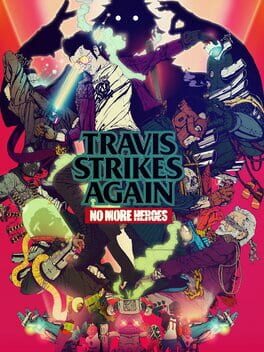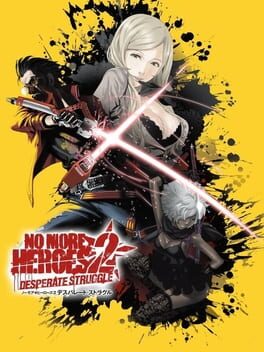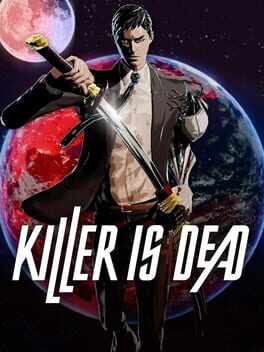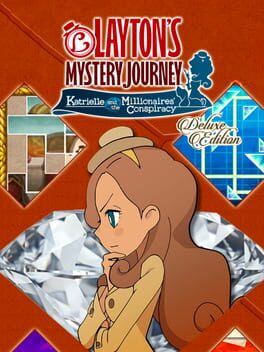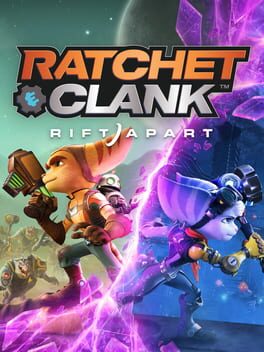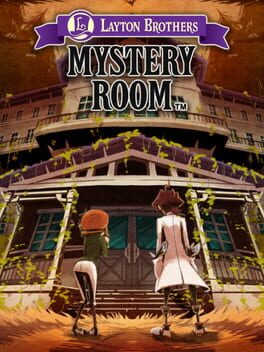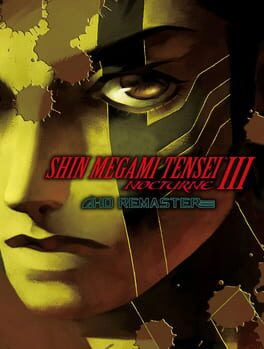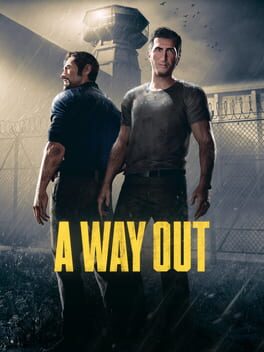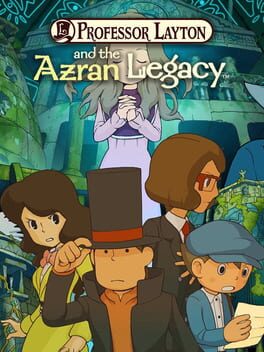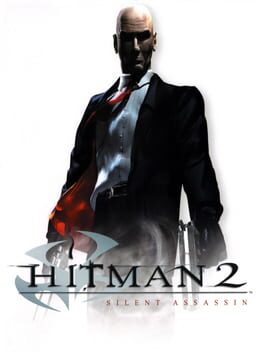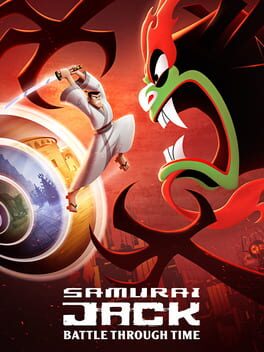Nyth_Grandbeard
Travis Strikes Again is the third entry in the No More Heroes series, and the culmination of the Kill The Past Universe (at the time of writing this review.) This game is a very interesting and exciting twist on the NMH formula. The gameplay feels almost like a mix of various elements of retro and indie games which is no mistake as Suda originally intended this game to be a huge cross over of indie games instead of KTP, but despite that original idea not coming to fruition, it's DNA is still strongly prevalent in the duration of this adventure. There are various different kinds of puzzles and gameplay styles that are explored in this game such as side scrolling, third person action, bullet hell, and top down dungeon crawling ala Gauntlet, and Hotline Miami which takes up a majority of the game's gameplay. As someone who deeply loves games likes endless enemy fighting in a top down gauntlet style this game was a bit of a blast for me to get through, but I know many people had a problem with this style, so if it's not your cup of tea you might not enjoy it as much as I did. What may make the game more palatable for many people is playing CO-OP with a friend to go through the various Death Balls (dungeons) as there are plenty of chaotic situations to go through with friends. Speaking to co-op, the game's story revolves around Badman as he hunts down Travis to get revenge for killing his daughter, Bad Girl, from NMH1. But as Badman closes in on Travis they both get sucked into the Death Drive a video game console where they learn about the enigmatic Dr. Juvenile who created the game world. Now Travis and Badman must to work together to find all the Death Balls, which are the video games to the Death Drive, to summon an all powerful Tiger that can bring Bad Girl back to life. Each death ball serves as their own individual dungeons with their own stories and puzzles to solve with yourself or friends. And in between each Death Ball level you go through a visual novel segment where you see many familiar faces from the KTP-verse and continue a couple plot threads from those games. All in all I think TSA is just a very misunderstood game because people expected this to be NMH3, but now that we have NMH3 I think it deserves another chance. And now that games like Silver Case, 25th Ward, and Killer 7 are more accessible to everyone, this game should be able to reach a wider audience that can appreciate what it was trying to do. Go ahead give it another chance.
No More Heroes 2 is the follow up to the first title which set the gaming world on fire back in the year 2007. While I know many fans have problems with this entry, I feel completely opposite, I feel like this game is an improvement in almost every way over the first, such as in gameplay, and story, however it is still far from perfect, and far from being my favorite in the KTP series. The story this time around personally felt more compelling, as Travis this time is forced to confront his sins from the first game, and is left often questioning the point of being an assassin as he learns empathy with the assassin's he faces in this game's journey. The gameplay is vastly improved as the combat has been far more refined with better animations, and more combos to pull off. The overworld map has been completely removed this time around in favor of a mission select screen which removes much of the padding of the first game, and the job system, while still remaining, is no longer required to progress the story. I wish the job system was still a little necessary as that is part of the identity of the series, but it certainly doesn't hamper the experience. I was very pleasantly surprised with NMH 2, and i'm excited to see what the series has in store next with Travis Touchdown, as he continues to mature as a character.
2007
No More Heroes is a one of a kind game that defied all odds and ended up being a massive success for Suda51 and the rest of Grasshopper, but how does it stack up to the rest of the kill the past series? NMH is a very interesting game in that it feels like an amalgam of various different gaming tropes such as character action combat, open world exploration, and convoluted plots which doesn't only feel like a jab at other developers but also a nod to Suda's previous works. Despite it's glaring commentary on the hyper violence and prevalent tropes in not only in gaming but also anime and movies, the game's messaging in my opinion falls a little flat for me in comparison to the grandiose theming that Suda tackled in his previous works such as Killer7 and Silver Case. But taken as it's own independent work, it does achieve what it sets out to do and for that I can applaud it, but at the same time I was just left wanting a little more out of the game's not so subtle commentary. The gameplay on the other hand is really inventive on how the flow is broken up which is where to be able to go onto the next mission you must complete part time jobs to make enough money to fund your next assignment. However, while this mechanic does over stay it's welcome a little bit by the end, it still is something I will always fondly remember this game for as it is something I hadn't really seen before in a game like this. My only major complaints other than the theming is that the over world map really serves not too much of a purpose other than a buffer between missions since there isn't really a whole lot to see or explore. Overall NMH is a good game, and a fine addition to the KTP lineage, but it may leave some KTP fans a little disappointed with the story.
2013
Killer is Dead is a truly interesting experience, it's hard to convey how playing this game feels other than seeing a whole world through a tiny window. As you play through the game you definitely get the sense that the organizations and characters you interact with have such deep and detailed back stories that we only catch a passing glimpse of, and part of that is thanks to this game's incredibly short run time. My playtime clocked in just over 5 hours, and in that brief time I went on a journey that felt like 1 million miles per hour. We step into the shoes of Mondo Zappa, an assassin for the Bryan Execution Firm who are contracted through the US Government. If this sounds familiar it should as this is a plot point very similar to the Killer7 in Killer7 and it should be clear by the title that this game is a spiritual sequel of sorts to Killer7. I know that some people are hesitant to consider this game as a follow up to Killer7 or as a part of Kill the Past, but as I played through this entry in the Grasshopper backlog it became abundantly clear that it is. There are so many call backs to Killer7 but also so many plot conventions from Kill the Past appear in this game that it's hard not to consider it as such. The gameplay is pretty simplistic as far as character action games go, but that doesn't mean it's bad. For a game who's runtime can be completed in one sitting, this simplistic combat hardly overstays its welcome, and provides just a enough depth for the player to master to pull off some really cool combos. The story, as nonsensical as it is, still has some emotional beats to keep you engaged and thinking about this game for a while. The graphical style as well is an evolution on the hard cel-shaded style from Killer7 featuring dark shadows, but with an added hazy effect to give this game a very dream like quality that I thoroughly enjoyed. Any fan of Grasshopper Manufacture, or the Kill the Past series must give this game a try, as there is no real risk outside of 5 hours of your time on a weekend.
25th Ward is the sequel to Silver Case and is the 4th game in the Kill the Past series following Silver Case, Flower Sun and Rain, and Killer7. One thing I really enjoy about 25th Ward is the characters, the new cast of characters all feel very engaging and fun, as you learn their stories and their relationships. Unlike the first game, this game is split into 3 story arcs, as opposed to 2. First we have Correctness which is the main story line featuring Shiroyabu, and Kuro, two detectives in the titular 25th Ward as they investigate the dark going ons happening around the ward. Next is Placebo which puts us back in the shoes of an amnesia raddled Tokio Morishima, as he tries regaining his memories, and finally we have Matchmaker which follows Tsuki, and Osato, to members of the Regional Adjustment Bureau in charge of making sure everything stays on track in the 25th Ward. Stepping back and looking at it as a whole, the game's story is very good and is a worthy follow up to the first game however, the plot in my opinion meanders a bit too much for my liking. For the most part the original Silver Case was a very tight and concise story with very little fat around the edges however this game is nearly double the length, and you can feel it. The game just over stays its welcome a little bit in my opinion and drags on a bit much. There are some segments in the story that by the end were completely pointless and could've been cut to greatly reduce the length of the game. Otherwise I think 25th Ward is worth your time, and is a great game for any Suda, and Kill the Past fan.
2005
Killer 7 is a highly unique and interesting game for it's era, and as a chapter in the "Kill the Past series." This game is easily one of the most unique, and impactful games on the Gamecube in terms of visual presentation. The cel-shaded graphics give a precursor look to what we would later see in future Kill The Past games such as No More Heroes, but with a more rough angle to it. The gameplay features you running on a set of preset paths where you can chose a direction to go once you reach an intersection. This style of movement took a little getting used to, but it also gave me a hint of the feeling of playing the previous Kill the Past entry, The Silver Case, so after a couple levels I got the hang of it. The combat requires you to stop in place to aim down sights like a rail shooter and hitting targets before they attack you and blow up. Successfully killing enemies gives you thick blood which is then used to trade into levels to further buff your character of choice. Speaking of characters, you play as the titular Killer 7, who are a group of world renowned assassins who all possess the body of Harman Smith, an old man in a wheel chair. You are able to switch between any character in the killer 7 via a safe room through the TV or through the pause menu, each character with their own sets of strengths and weaknesses. My personal favorite to play as were Dan Smith, and Mask De Smith who use a revolver, and grenade launcher respectively. The story primarily follows the exploits of Garcian Smith, one of the "personalities" that reside within the head of Harman smith as he goes on a mostly episodic adventure taking out various targets to help the prevention of terrorism in the United States. The story starts to explore the origins of Garcian and the other Smiths towards the end of the game, culminating in a truly mind bending and interesting conclusion that is sure to stick with anyone for years. Killer 7 is a worthy game to add to your backlog, and a great game in the Kill the Past Series. My only complaints are that I wish the story had more focus during the middle portion of the game, that's not to say that the episodic structure is bad, or that I didn't enjoy those missions, but having them tie in to the overall narrative would've made the game that much better. Also some of the songs in this game are absolutely stunning, but for some inexplicable reason Suda (the game's director) decided the best course of action was to put the best song in the game, Rave On, in a short 5 second section, really an odd choice. But regardless Killer 7 is a game that will forever hold a special place in my memory, and I cannot wait to see what the rest of Kill the Past has to offer.
2016
The Silver Case is (officially) the first game in the Kill the Past Saga, and is also the first game by Grasshopper Manufacture. This game is also the first true VN I've managed to sit though, and I don't regret it one bit. The game follows several people from the Heinous Crime Unit as they pursue the elusive serial killer, Kamui Uehara, and his influence over the 24 Wards of Japan. And that's all I'll say as It's hard talking about the game without giving too much away, but the game has a really interesting and engrossing story that is split in two parts through Transmitter, and Placebo. These two halves slowly merge together the further you go. The gameplay, yes there is gameplay, is actually not what I expected. We get to play the game through a first person dungeon crawling perspective and I find it very fun to explore and interact with the world but unfortunately these segments are a little short for my taste. My biggest problem however, with this game is the fact that it ends on a bit of cliff hanger, but I can't hold it against it too hard as there are 2 follow ups that continue the story. So overall Silver Case is a great introduction to this universe that would later foster the No More Heroes games, and I highly recommend it to VN and NMH fans alike as there really isn't anything like it out there.
Layton's Mystery Journey is the newest, and final (at the time of writing this) game in the Professor Layton series, and what else can I say other than what a bad way to end the series. I must make it clear from the start, this game's biggest issue is it's complete and utter lack of focus. The game is about the daughter of Professor Layton, one Katrielle Layton as she starts her own private detective business in London. The game, much like the previous entry, Layton Brothers, is split up into cases for you to piece together and solve, but unlike Layton Brothers, this game just lacks a central focus and plot line to follow. Instead we just get little slice of life chapters with very simple and predictable mysteries that struggled to keep my attention in fact my main enjoyment from the game was the very minor call backs to the previous games in the series. I don't necessarily think the characters or the set up of the game is bad, in fact it's far from it, the problem stems from the fact the game completely ignores all the interesting plot points it sets up for the complete opposite. For instance the set up shows Professor Layton leaving Katrielle on a foggy night setting up for an interesting premise.This plot point is never brought up again until the post credit scene, but more on that later. Next we have Sherl who is allegedly a human trapped in the body of a dog introduced in the first case who tags along with the main team for the complete length of the game. Sherl, and Katrielle's fates intertwine when Sherl reaches out to Katrielle's detective agency to help find out how he turned into a dog, but guess what, that plot point is completely waved away, and is NEVER brought up again for the remainder of the game. In stead we spend around 15 hours lolly gagging with Katrielle and crew as they solve, quite frankly, very boring cases that you can probably guess the answers to before you even start them. The only case that really was interesting to me was the 12th and final case 'Diamonds Aren't Forever.' The mystery is compelling enough, and the big reveal was genuinely surprising to me, but too bad it felt like one of the shortest cases in the game. The gameplay overall is the best part, as the typical layton formula is translated well enough to the nintendo switch system. Map navigation, interaction and puzzle solving feels true to the series and or that I honestly cannot complain. Some of the puzzles were a little too simple, but with the passing of the original puzzle master for the main series, I feel like they picked up the pieces as best as they could, and I can't fault them for that. All that said, this brings us back to what's up with the """"central"""" mystery of the game, what happened to Professor Layton? Well instead of making a sequel game, they decided to make a follow up anime that is 50 episodes long and is only officially released into japan that answers that exact question. And seeing as how Level5 USA is no longer existent it feels surreal that us in the western audience will potentially never get a conclusion to this question. Sure there is fan subs out there, but this is honestly less than ideal. I genuinely hope this is not the end of the Layton Series but seeing as the sales and reception for this game aren't particularly great, this might actually end up being the lasting legacy of the series which is actually incredibly depressing. I feel like the better route for the series was to perhaps continue the Layton Brothers story, but instead we got this (which does reference characters to Layton Brothers.) I didn't mind Katrielle as the one to continue the torch of the series, but she really needed to be in a better overall game. Sad to see it end like this, honestly.
Ratchet and Clank Rift Apart is the long awaited sequel to the series that continues where Into the Nexus left off. The story picks up the plot threads left by the "Future" series but many years later where the titular Ratchet and Clank are now feeling out of shape as heroes since they haven't been on an adventure in many years. But they are quickly thrust back into action when Dr. Nefarious gets his robot claws on Clank's Dimensionator which sucks them into a parallel dimension where Nefarious always wins. It is here where Ratchet and Clank get separated and clank meets up with the alternate reality version of Ratchet, the rebel lombax, Rivet. It is here where Ratchet and Rivet's fates intertwine on a journey to send Ratchet and Clank back to their dimension and stopping Nefarious from conquering the multiverse. In this game you play between 4 main characters, which mirror each other resulting in honestly just 2 different play styles. Ratchet and Rivet play the exact same as each other in the typical R&C format. Quick gunplay while strafing with occasional melee and platforming. There are some minor additions such as "Ghost Shifting" and the use of Rift Portals which help you zip and fly around battle arenas. The gameplay is a ton of fun as is the case with most of the Ratchet and Clank games. Clank, and his counterpart Kit play the same segments where they enter dimensional rifts where they solve simple puzzles to reach an objective. These puzzle segments aren't as complex or difficult as Clank's puzzle segments in Crack in Time, but they feel just as rewarding when you solve them. The visuals, as are with most PS5 first party games, are absolutely stunning, and a great example of the PS5's power. The non existent load times also help keep the flow of gameplay at a constant stream which will keep any player engaged to the gameplay. I really hope Sony is willing to see the excellence and sales of this game and seek to bring back the golden Playstation trio of Sly and Jak back into the fold with this type of fidelity, but only time will tell. My only major complaint for the game was I wished there was a little more diversity between Rivet and Ratchet's play-style but I understand why the didn't, and honestly that's just a minor complaint. Overall this is a great return to the main story line of ratchet and clank, and I cannot wait to see what insomniac has in store for us next.
Layton Brothers is the first in what I like to call the sequel series to the main Professor Layton series proper. And does this child live up to the legacy of its father series? In my opinion, yes, but I can see why some would disagree. A big part of my enjoyment of the original Layton series for me was the story, characters, and music, not so much the puzzles. The puzzles were certainly fun and memorable, but my main take away from the series wasn't really the gameplay, so that's why I was glad to start this game which has a refreshing take on the world of Layton, with the same exaggerated art style, larger than life characters, and great music (although the music has shifted from the Musette style we have become accustom to for more uptempo jazz.) Even characters that only appear for a single chapter in this game are very memorable thanks to their designs and well defined personalities. But I digress; the gameplay instead of being strictly puzzle focused, is instead a crime scene investigation style of game where you gather clues to help persecute a criminal out of a lineup of suspects. So there is still puzzle solving to some regard in this game, but just a very different style. I feel like this genre change is, or rather I should say was a great direction to take the series into. The story this time around is much darker than what we are used to with the Layton series as you play as Alfendi Layton, and assistant Lucy Baker who both work in the "Mystery Room" department of the Scotland Yard. The titular Mystery Room is where special cases that normal detectives couldn't figure out get taken, so it is brought to Layton who has has a split personality, where one half is timid and kind hearted, while the other is sinister, and has the mind of a killer. With this pairing of personalities Layton is able to understand the minds of the killers he confronts while being able to persecute them for their crimes. This game deals with a lot of blood, and gore, with some very twisted characters you encounter which is a series first for games that are typically more whimsical and light hearted. Unfortunately however after this game was completed it seem like there was no real attempt to keep the story of Alfendi Layton, and Lucy Baker going, despite the game leaving the door open for sequels. No, instead we got the contentious "Layton's Mystery Journey: Katrielle and the Millionaires' Conspiracy" and the subsequent anime that accompanied it staring Professor Layton's daughter, and Alfendi's Sister, Katrielle. Fortunately it seems like level5 hasn't forgotten the characters as they appear for a very brief cameo in the final episode of the anime. Overall this game is an excellent experience, and great addition to the world of Layton and it's actually a crime this game is locked behind mobile, as I feel this game would do really well if it was ported to something like the switch. The game's mix of zany characters with the lite Phoenix Wright style gameplay ought to find it's audience on a platform as wide as the switch. But alas, with the closing of Level5's studios in America, I feel like this dream is more dead than some of the cadavers you investigate in this game, which is very truly sad. I highly recommend checking this game out while you can, before it becomes phased out of later iOS or android updates like many mobile games before it have.
Shin Megami Tensei III Nocturne HD Remaster is an excellent port of an excellent game (keep in mind I am playing on PS5.) It is everything I love about nocturne and more with new added dialogue, upscaled textures and minor QoL features that make this game worth replaying or anybody who has played it before. For new comers there has never been a better way to experience Nocturne officially, and I highly recommend anyone who is slightly curious about SMT to pick it up, at least on PS4 and PC. WARNING: EXTREMELY UNPOPULAR OPINION AHEAD.... I know a lot of people have complained about the game not running on 60fps or higher but honestly I don't think you need 60fps for a turn based RPG. Would it have been nice if it did? Sure, but when paired up with the original that didn't run at 60fps to begin with I have no qualms with what we got. I know the switch version in particular likes to dip below 30fps, but I have yet to encounter this once in my 60 hour play through on the ps4 version through PS5 backwards compatibility. Overall this is everything to love about Nocturne with the engaging Press Turn System combat, and challenging and memorable boss fights. Even if you are a fan coming in from P5 and P5R I highly recommend trying this out as this was directed by Katsura Hashino, director of P3, P4, and P5 and you can definitely see the DNA of those games in this one. Keep in mind it is a game that originally came out in 2003 so it isn't perfect, but the minor adjustments they made here should keep it fresh for any new comer.
2018
A Way Out is an interesting cinematic co-op centered game from Hazelight Studios. My first exposure to Hazelight Studios was with their most recent entry (at the time of writing this) It Takes Two which was also a co-op game that had numerous fun puzzles to solve that require both players to think fast and outside the box. Going into A Way Out I was just expecting something very similar, and what I was left with was something that definitely had some light puzzle solving, but focused more on the cinematic tale brought to us from the perspective of two convicts named Leo and Vincent. The gameplay is split screen and allows both players to control their own separate character chosen before loading the game up. In this game you will do a lot of interacting with the environment and talking to NPCs, or blazing through quick action set pieces which is a way different pace than It Takes Two, and while that’s not what I was expecting it certainly wasn’t bad. In fact, for the story it was trying to tell I felt that the style of gameplay this game takes is most definitely effective and keeps the players engaged as they go through the story full of twists and turns. The game starts off with our protagonists scheming a plan to escape prison to get revenge on a common enemy, and as the game goes on you get to explore many different locations big and small and witness the growth of both protagonists. A majority of the puzzle solving is to be had in the prison segment of the game but there are still some small ones here and there later on in the story. Everything comes to a head for an epic conclusion at the end that will really test both players skills which was very satisfying and emotional. While A Way Out is not as refined as its follow up, It Takes Two, it still stands on its own with its own merits as a great game and awesome co-op experience. If you are coming in from It Takes Two you may be left a little disappointed knowing that the puzzles kind of take a back seat with this game, but I truly believe if you give it time it will grow on you.
Professor Layton and the Azran Legacy is the final game in the main Layton series, and it takes the story to heights the likes of which we haven’t seen before in these games. Being a prequel game to the series it feels a bit odd as the stakes laid out over the course of this games story are so grandiose in comparison to the original trilogy that the stories told in that game dwarf in comparison. But that said, that isn’t necessarily a great thing, I feel that the huge leap in what’s at stake can almost feel like a jump the shark type scenario for the series despite being built up from through Last Specter and Miracle Mask. Despite my shaky feeling about the larger than life narrative what makes me really appreciate the game once again is it’s characters. The new cast of characters introduced for the prequel trilogy seemed a bit shoe horned in at first, but as the trilogy told its story I became more invested in the microcosm that they inhabited watching all the characters relationships unfold into an ultimate climax in this entry was very satisfying. As for the gameplay, it takes the 3D Layton formula set up in Miracle Mask and improves on it just slightly to make the whole experience more enjoyable. Navigating the map and looking around an area remain largely the same but have been refined ever so slightly that it feels more enjoyable to control and explore, which was my biggest gripe with Miracle Mask. The game’s puzzles seemed to ease up on the math puzzles which I greatly appreciated but one thread that has continued throughout the prequel series the almost lack of any real creativity with the puzzles that we saw in the original trilogy. This does not mean the new puzzles are bad, far from it, but looking back at puzzles from Curious Village you can tell they were starting to run out of steam here. As for the environments you explore this game perhaps may be the largest in the series yet, as Layton and Co go on a globe trotting adventure exploring places like the Wild West, a tropical island, a Romani Village, amongst many others which are all displayed in high detail and brought to life with lovable NPCs and wonderful music. Overall I had a great time with Azran Legacy, and it is a great send off to the mainline series of games even if it bites off more than it can realistically chew. Any Layton fans should leave this game feeling satisfied at the very least.
Hitman 2 Silent Assassin is an interesting experience to say the least as some one who came directly from the reboot trilogy. There is very little about this game that feels particularly polished yet you can't really blame the devs too much as this was back when they were trying to find that Hitman formula we have all come to love. The first game, Hitman Codename 47 started development as a standard FPS game but was later transformed into a pseudo-stealth game by release, however it didn't really accomplish that goal too well. With this entry IO got a chance to start over again while continuing 47's story. This game introduces mechanics such as corner leaning, and crouching which help you maneuver through the maps in a somewhat of a stealthy manner. This game unfortunately does fall flat in this regard though thanks to the incredibly slow pace of the stealth movement and the super jank of the enemy AI. You can be following any enemy's particular movement path while crouching and doing everything right but for no discernible reason the enemy will just turn around and ruin your run. There is also the problem where some of the maps are just too big for their own good. Stuff like St. Petersburg, and the mountains of Japan are just colossal (for a Hitman game) for no real reason outside of padding the play time, which speaking of padding there is a lot of it in this game with it's stuffy 21 locations you visit, some of which are pretty fun to play around in. My favorites include the Yakuza Stronghold mission, and the Indian Cult Island as they provided a real template of what future Hitman games would build their level design around. As for the story, it is nothing too crazy which is inline with the other Hitman games, however unlike the other Hitman games i've played the story does have a vary particular level of funk, and cheese in it's tone that I really don't hate. Following the end of Codename 47, Agent 47 has decided to find a new lease on life by trying to live peacefully at a catholic monastery before being thrust back into the life of murderer for hire when his priest buddy gets kidnapped. Speaking of B-Movie cheese this only compounded by the wonderful score fro Jesper Kyd. The Euro-pop/Movie score soundtrack really fits this world that IO had developed and it makes me kinda wish we got to see what he would've composed if he stuck with the reboot trilogy, my favorite song being the Main Menu theme. Despite it's jank, and despite my lukewarm feeling on it I recognize this game as a very important piece of the Hitman pie, as it is the first true stealth game in the series, even if it doesn't pass with flying colors and you can play much worse for 13-14 hours.
Samurai Jack: Battle Through Time is an interesting case where a tie in game in game isn't necessarily great nor is it bad. The game takes place towards the final minutes of the final episode of the final season of Samurai Jack where it diverges from the show where Jack is stopped from escaping the evil Aku's influence and is instead dragged into a pocket dimension where he is forced relive and battle through some of his most iconic moments from the show. The game does require a little before hand knowledge of the Samurai Jack IP for you to understand the characters and their motivations as this game doesn't really provide much in the way of context, it just kinda expects you to know the world of SJ. The characterization of certain characters is on point, and many (if not all) of the voice actors return to reprise their roles for this entry, so you will feel right at home as a Samurai Jack fan. The visuals are also as accurate to the show as a you'd expect a 3D rendition of the show could be, and sometimes it can leave you breathless with how beautifully some set pieces transition to a 3D space. That can't be said for every environment however, as many of the levels, while interesting to go through can be pretty barren of details to keep your attention. It also doesn't help that a lot (if not all) of the game's animations are mo-capped which can look great in other games, but for a show like samurai jack that uses limited animation to it's advantage the fluid mo-cap feels a little weird from fans coming from the show. The gameplay is another point of contention I have for this game as the combat feels pretty stilted. I'm not really an elitist when it comes to action games, as I have a pretty high tolerance and appreciation for stiff combat (I love how the legacy of kain series and original NieR games play for example.) But this game can feel particularly stiff, especially at the beginning where you haven't leveled up Jack's skills at all. Certain animations can not be stopped once started such as for the dodge animation which can really break the flow of gameplay especially since the dodge is particularly slow. If you can master the timing on the animations though it makes it less of a headache to deal with but is still annoying none the less. When you do a dodge roll or get knocked down you have to wait until the complete animation executes before you can pull off another move whether it be an attack or another dodge and it can really throw you off if not prepared. The balancing also fluctuates a little too much for this game as in one room you can clear 20 enemies with ease but 5 minutes later your on a moving train fighting a boss rush where no matter what weapons you use you can only chip damage them. Thankfully there are things such as skill upgrades, and weapon upgrades that should help you on your journey but this game could definitely benefit from having better balancing overall. In conclusion Samurai Jack: Battle Through Time is a fun, but mediocre romp through the world of Samurai Jack that takes the story on a little detour to enjoy some of the series' most iconic moments. It's certainly a game for the fans as I feel an outsider would be hard pressed to find much enjoyment out of the gameplay alone. But if you are a fan of Samurai Jack, and love the series for what it is, it certainly is far from the worst tie in game ever made, and it certainly is far better than other of the Samurai Jack video game offerings.
